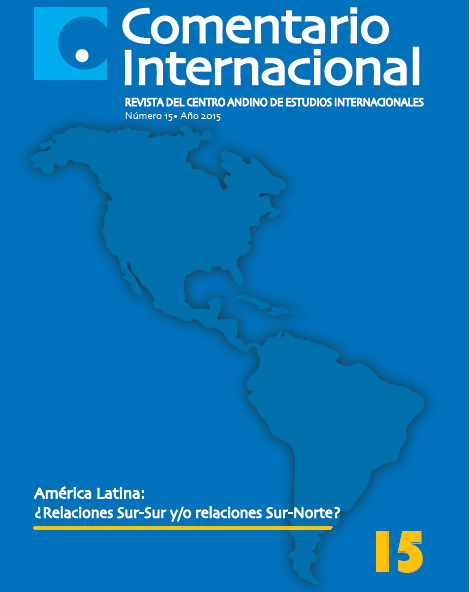La percepción de una revolución ¿Venezuela ante el post-chavismo?
Contenido principal del artículo
Resumen
Dos años después de la muerte de Hugo Chávez se han manifestado evidentemente rupturas entre el gobierno de su sucesor, Nicolás Maduro (PSUV), y las bases
del chavismo. La caída de los precios del petróleo en el mercado mundial apretó fuertemente la situación económica y socialmente tensa de la economía rentista
de Venezuela. Por lo tanto, el gobierno de Maduro se enfrenta al dilema de aplicar reformas estructurales económicas con enormes costos políticos o acercarse inevitablemente hacia una bancarrota nacional. Sin embargo, la crisis actual va mucho más allá del gobierno de Maduro y del chavismo. Las élites políticas de la Cuarta
República (1958-1999) también tienen una responsabilidad en los problemas estructurales del país. Una perspectiva futura, políticamente estable y económicamente
sostenible puede desarrollarse sólo con el chavismo, no en contra de él.
##plugins.themes.bootstrap3.displayStats.downloads##
Detalles del artículo
Sección
Los autores que publiquen en esta revista aceptan las siguientes condiciones:
1. Los autores conservan los derechos de autor y ceden a la revista Comentario Internacional el derecho de la primera publicación, con el trabajo registrado con la licencia de atribución de Creative Commons, que permite a terceros utilizar lo publicado siempre que mencionen la autoría del trabajo y a la primera publicación en esta revista.
2. Los autores pueden realizar otros acuerdos contractuales independientes y adicionales para la distribución no exclusiva de la versión del artículo publicado en esta revista (p. ej., incluirlo en un repositorio institucional o publicarlo en un libro) siempre que indiquen claramente que el trabajo se publicó por primera vez en Comentario Internacional.


